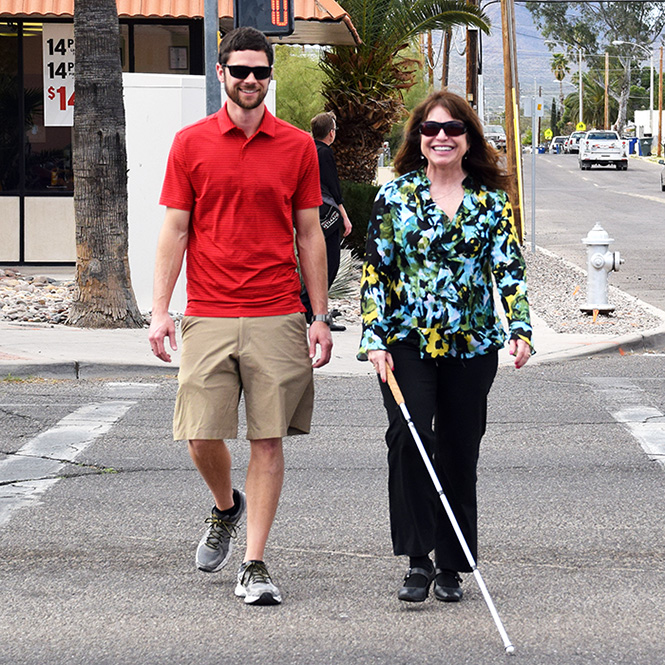In 1984, President Reagan issued a proclamation designating the last week of June as “Helen Keller Deaf-Blind Awareness Week.”
Deaf-Blind Awareness Week, celebrated annually during the last week of June, is a crucial time dedicated to raising awareness about the unique challenges faced by individuals with dual sensory loss. This week also honors the remarkable resilience and achievements of the deaf-blind community, promotes understanding, and advocates for improved accessibility and inclusion.
The Significance of Deaf-Blind Awareness Week
Deaf-Blind Awareness Week was inspired by the birth of Helen Keller on June 27, 1880, who became a world-renowned advocate for people with disabilities. Her life and achievements continue to inspire many, underscoring the importance of support, education, and advocacy for the deaf-blind community.
Understanding Deaf-Blindness
Deaf-blindness is a combined vision and hearing loss that significantly impacts communication, socialization, and daily living. The degree of vision and hearing loss varies widely among individuals, and this dual sensory loss creates unique challenges that require specialized strategies and support.
Common Causes of Deaf-Blindness
Deaf-blindness can result from various factors, including:
– Genetic Conditions: Conditions like Usher syndrome and CHARGE syndrome are leading causes.
– Illness or Injury: Infections, head injuries, or complications at birth can lead to dual sensory loss.
– Age-Related Conditions: Age-related vision and hearing loss can also result in deaf-blindness in older adults.
Challenges Faced by the Deaf-Blind Community
The deaf-blind community faces numerous challenges, including:
– Communication Barriers: Traditional communication methods may not be effective, necessitating the use of tactile sign language, Braille, and other adaptive techniques.
– Social Isolation: Difficulty in communication can lead to feelings of isolation and loneliness.
– Accessibility Issues: Many environments and services are not adequately equipped to accommodate the needs of deaf-blind individuals.
– Limited Educational and Employment Opportunities: Access to education and meaningful employment can be limited without appropriate accommodations and support.
Promoting Awareness and Inclusion
Deaf-Blind Awareness Week is an opportunity to highlight the importance of creating a more inclusive society. Here are some ways to get involved and make a difference:
1. Educate Yourself and Others: Learn about deaf-blindness, the experiences of those affected, and the various communication methods and technologies that can assist them. Share this knowledge with your community to foster understanding and empathy.
2. Support Accessibility Initiatives: Advocate for policies and practices that enhance accessibility in public spaces, workplaces, and online platforms. Support organizations that provide resources and services to the deaf-blind community.
3. Participate in Events: Join or organize events such as workshops, webinars, and fundraisers that focus on deaf-blindness. These events can help spread awareness and raise funds for essential services and research.
4. Volunteer and Donate: Offer your time or financial support to organizations that work with the deaf-blind community. Your contributions can make a significant impact on the lives of individuals with dual sensory loss.
5. Engage with the Deaf-Blind Community: Build relationships with deaf-blind individuals and learn about their experiences firsthand. This engagement can help break down barriers and promote a more inclusive society.
Advances in Support and Technology
Significant progress has been made in developing technologies and services to support the deaf-blind community, including:
– Assistive Devices: Technologies like Braille displays, screen readers, and hearing aids with tactile feedback can enhance communication and independence.
– Specialized Training: Training programs for interpreters and support service providers are crucial for effective communication and assistance.
– Accessible Education and Employment: Efforts to provide inclusive education and workplace accommodations help ensure that deaf-blind individuals have equal opportunities.
Celebrating Resilience and Achievements
Deaf-Blind Awareness Week is also a time to celebrate the resilience, achievements, and contributions of deaf-blind individuals. Their stories of overcoming challenges and advocating for their rights inspire us to strive for a more inclusive and supportive world.
By recognizing and addressing the unique needs of the deaf-blind community, we can work towards a future where everyone has the opportunity to thrive and participate fully in society. This Deaf-Blind Awareness Week, let’s commit to fostering understanding, promoting accessibility, and celebrating the remarkable individuals who are part of the deaf-blind community.

